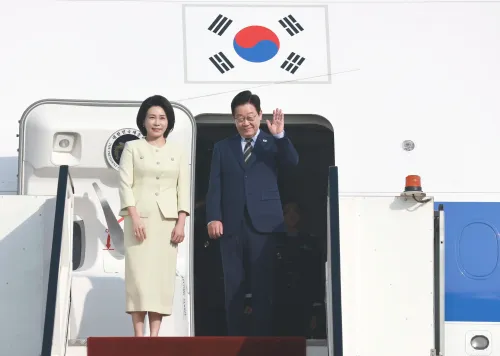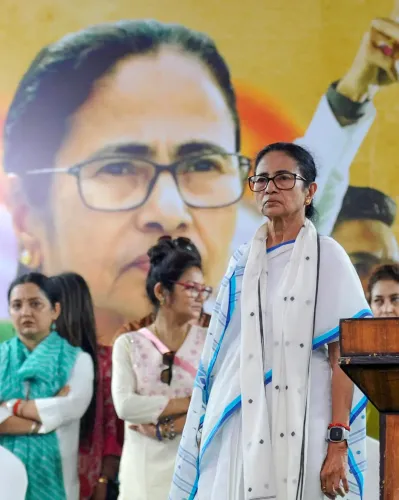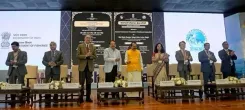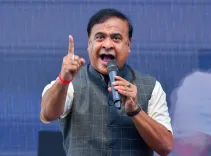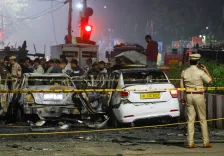Is Bangladesh Facing Political Turmoil Ahead of February Elections?

Synopsis
Key Takeaways
- Political tension is escalating in Bangladesh ahead of the February 2026 elections.
- The interim government's plans have raised concerns about potential favoritism.
- Security measures are expected to increase due to fears of unrest.
- The outcome of the elections could significantly impact Bangladesh's democratic future.
- Engagement among political parties is essential for a peaceful electoral process.
Dhaka, Nov 21 (NationPress) Bangladesh is currently engulfed in increasing uncertainty regarding the upcoming February 2026 parliamentary elections, as prominent political parties exchange accusations of attempting to postpone the electoral process, according to a report released on Friday.
The interim administration led by Muhammad Yunus has announced plans to conduct both the general election and the July Charter Referendum simultaneously in February 2026, citing cost efficiency and logistical convenience. This decision has heightened opposition fears that the government is subtly favoring the Bangladesh Nationalist Party (BNP).
“Jamaat-e-Islami (JI) Bangladesh and its coalition partners have repeatedly asserted that elections cannot take place until a referendum is conducted first, and the charter is made obligatory for all. JI contends that the July Charter, which proposes significant political reforms (including a bicameral parliament and term limits), is a transformative document that must be granted constitutional and legal recognition through a referendum. However, JI’s concerns may stem from its desire to legally secure these reforms and limit the next parliament's authority, ensuring that the subsequent government operates under the newly established constitutional framework,” elaborated a report from the 'International Centre for Peace Studies.'
The report warns that increased security and a renewed risk of violence appear unavoidable in Bangladesh, as the Awami League (AL) seeks to reclaim its political influence and disrupt the electoral process.
“Sajeeb Ahmed Wazed Joy, son of Sheikh Hasina and advisor, has cautioned that the party’s supporters are prepared to obstruct the February elections unless the ban on the AL is lifted, a statement that signals the potential for unrest should their demands go unmet,” it added.
On November 17, the Dhaka-based International Crimes Tribunal (ICT) issued a verdict sentencing former Prime Minister Sheikh Hasina and former Home Minister Asaduzzaman Khan Kamal to death, following a protracted trial amid protests from AL supporters.
Established in 2009 by Hasina's former government, the ICT was charged with prosecuting individuals accused of war crimes and genocide during the 1971 Bangladesh Liberation War. “After the government was overthrown, the interim administration led by Muhammad Yunus restructured the ICT to investigate and prosecute the atrocities committed during the July 2024 Uprising. The very judicial system created by one regime to consolidate its authority is now being employed by its successor to undermine and obliterate its predecessor,” the report highlighted.


